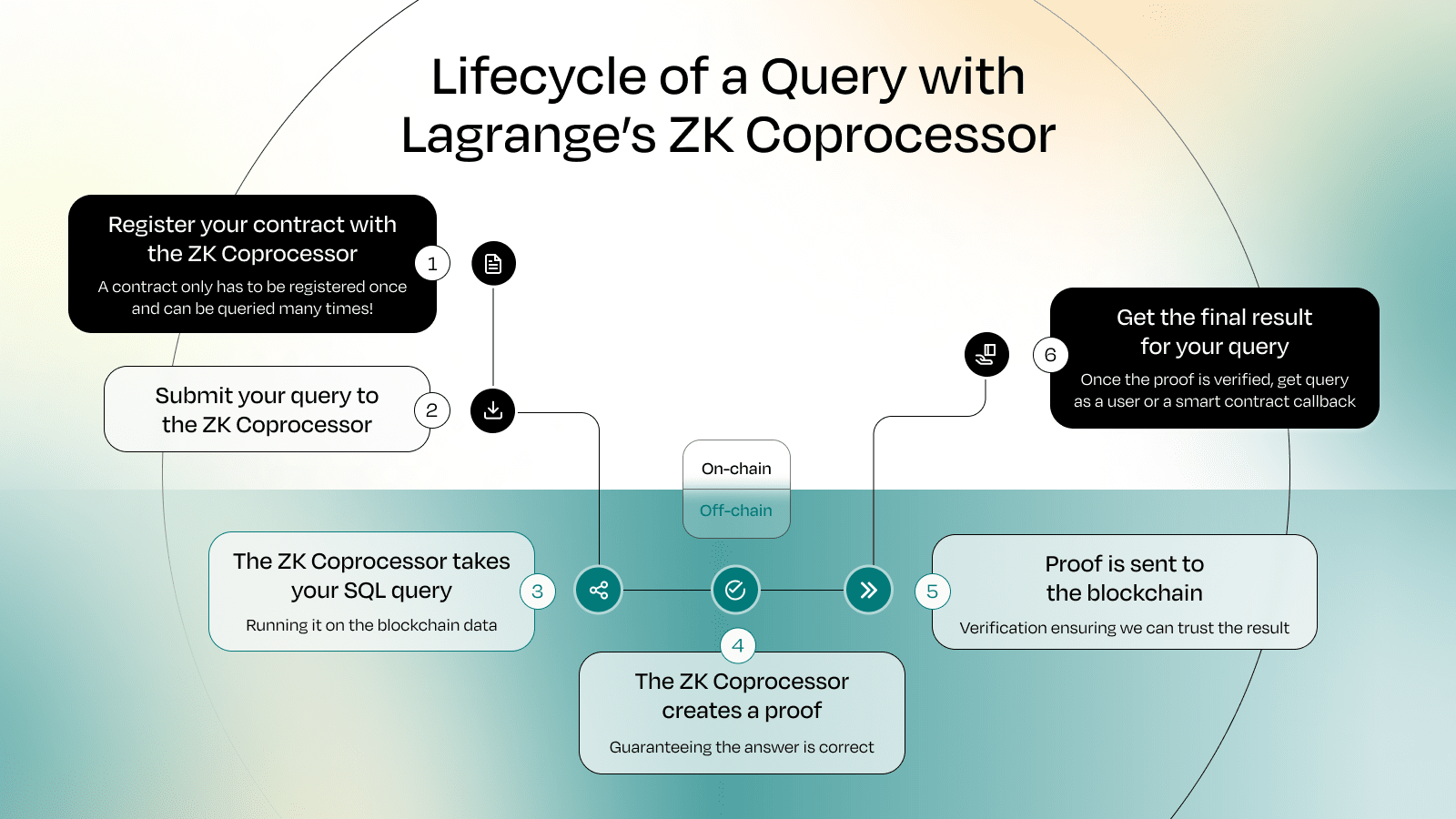In today's rapidly developing blockchain technology, the limitations of computing power have always been a key bottleneck restricting application innovation. Although traditional blockchain networks provide decentralized security guarantees, they often struggle to handle complex computational tasks. It is against this backdrop that a revolutionary technological solution has emerged—the Lagrange zero-knowledge co-processor.
Innovative architecture that breaks traditional computing boundaries
The core concept of the Lagrange zero-knowledge co-processor can be summarized in one sentence: to create a provable database containing a subset of raw blockchain data, supporting efficient queries and providing cryptographic correctness proofs. This technology cleverly combines the security guarantees of blockchain with the computational demands of modern applications, opening up new possibilities for developers.
This system adopts a dual-stage operation mode. First, it indexes the contract storage through a data preprocessing stage, converting the blockchain data structure into a zero-knowledge proof-friendly format to build a verifiable database that supports efficient queries. Then, in the query execution stage, the system processes provable queries in parallel using MapReduce's distributed computing method, ensuring that each computation result has a cryptographic level of reliability.
Unbounded exploration of cross-chain computing
Most excitingly, this co-processor has powerful cross-chain processing capabilities. Developers can deploy applications on Ethereum while querying and computing data from different second-layer networks without relying on traditional cross-chain bridge infrastructure. Imagine a DeFi application that can aggregate liquidity data from multiple networks in real-time, calculate the optimal trading path, and directly pass the results to the main chain contract—this seamless cross-chain experience is becoming a reality.
The infinite potential to reshape application ecosystems
From a technical implementation perspective, this system supports SQL-like query languages, allowing developers to write complex analytical operations in a familiar manner. Whether it's price aggregation for DeFi protocols, maintaining game leaderboards, or generating enterprise-level compliance reports, efficient processing can be achieved while maintaining cryptographic security.
In terms of cost-effectiveness, since intensive computations are migrated to off-chain execution, only lightweight verification is required on-chain, significantly reducing Gas fees. At the same time, the distributed computing architecture ensures the scalability of the system, allowing it to flexibly adjust computational resources as business demands grow.
Leading a new era of blockchain computing
The significance of this technology goes far beyond solving current computational bottleneck issues. It brings a new design idea to blockchain application development: developers no longer need to compromise between computational complexity and decentralization but can obtain the advantages of both simultaneously. From complex quantitative trading strategies to real-time cross-chain asset management, from large-scale data analysis to precise risk assessment, various application scenarios that were previously deemed impossible on blockchain are becoming a reality.
With the continuous maturation and popularization of this technology, we have reason to believe that the boundaries of blockchain applications will be further expanded. This is not only a breakthrough at the technical level but also an innovation in the development philosophy of the entire industry.
In this new era full of opportunities, the Lagrange zero-knowledge co-processor is injecting strong innovative momentum into the blockchain ecosystem with its unique technological advantages. For developers and investors pursuing the cutting edge of technology, understanding and utilizing this technology will be key to seizing future development opportunities.



